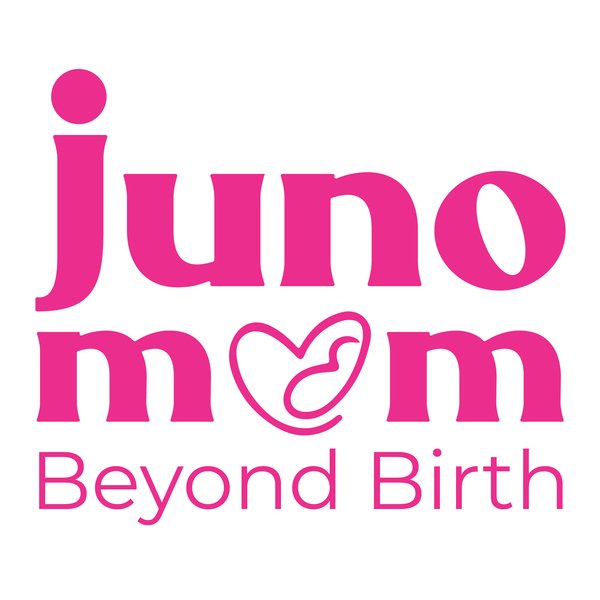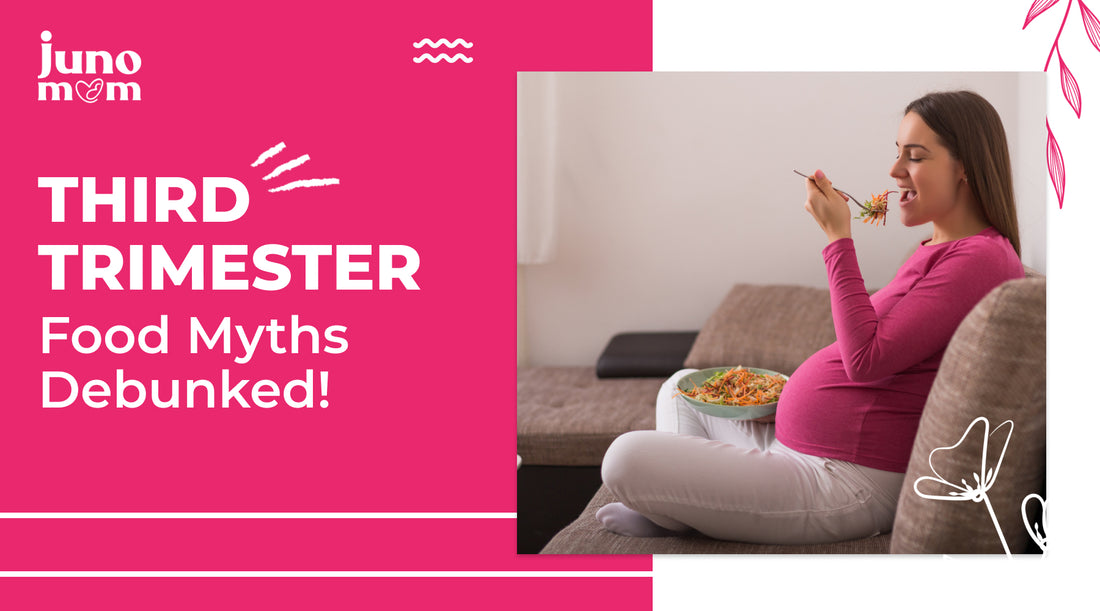As you step into the final stretch of your pregnancy—the third-trimester pregnancy—you’ll likely hear countless opinions about what to eat and what to avoid. While many of these come from well-meaning friends and family, some are simply myths that can cause confusion. But what’s important is you do not have to hear and follow any of it, you can just do your own research and consult your doctor at each step.
Let’s dive into the truth behind these common myths to help you make better food choices during this crucial time and be sure of what you consume.
Myth 1: Pregnant Women Should Eat for Two

This is one of the most popular pregnancy myths! The truth is, during the pregnancy third trimester, your body needs just about 300–500 extra calories a day. Think of this as an extra snack, like a banana with peanut butter or a small bowl of yogurt with nuts—not an entire extra meal. Overeating can lead to unnecessary weight gain, making recovery harder after delivery.
Myth 2: Spicy Food Can Induce Labor

Are you worried that eating spicy food at 7 months pregnant might send you into early labor? Don’t be! While spicy food can sometimes cause heartburn (thanks to your growing baby pressing on your stomach), there’s no scientific evidence that it can trigger labor. So, enjoy your favourite spicy curry, but keep some antacids nearby if needed. Consult your doctor if something goes extremely wrong.
Myth 3: Avoid All Fish During Pregnancy
Fish is often misunderstood during pregnancy. While it’s true that some fish, like shark or king mackerel, should be avoided due to high mercury levels, many types of fish are safe and beneficial. Salmon, sardines, and trout are rich in omega-3 fatty acids, which support your baby’s brain development during the pregnancy period. Moderation and careful selection are key.
Myth 4: Pineapple and Papaya Are Dangerous
You may have heard that eating pineapple or papaya during the pregnancy stages can cause contractions or even miscarriage. This is not entirely accurate. In large amounts, unripe papaya contains latex, which might cause uterine contractions, but ripe papaya and pineapple in moderate amounts are perfectly safe and nutritious.
Myth 5: Herbal Teas Are Always Safe

Herbal teas might sound healthy, but not all are safe during pregnancy. Some herbs, like raspberry leaf, can affect uterine activity. Always check with your doctor before trying new teas to ensure they won’t interfere with your pregnancy.
Third Trimester Foods to Focus On

Instead of stressing over myths, focus on including nutrient-rich foods in your diet. Here are some examples:
- Leafy Greens: Packed with iron to help prevent anemia.
- Lean Proteins: For your baby’s growth and muscle development.
- Dairy Products: For calcium to strengthen bones.
- Whole Grains: For sustained energy during these final weeks.
Why Nutrition Matters
The third trimester is all about preparing your body and baby for birth. Eating balanced meals supports your baby’s brain, bones, and overall development while giving you the strength you need for labor. Plus, staying informed and confident in your food choices can reduce stress—a major bonus during the final weeks of the pregnancy trimesters.
It’s natural to feel overwhelmed by conflicting advice, but understanding the facts can help you navigate this exciting phase with confidence. Trust your instincts, consult your doctor when in doubt, and enjoy the journey to motherhood.
Your body knows what it’s doing—give it the fuel it needs to thrive!


